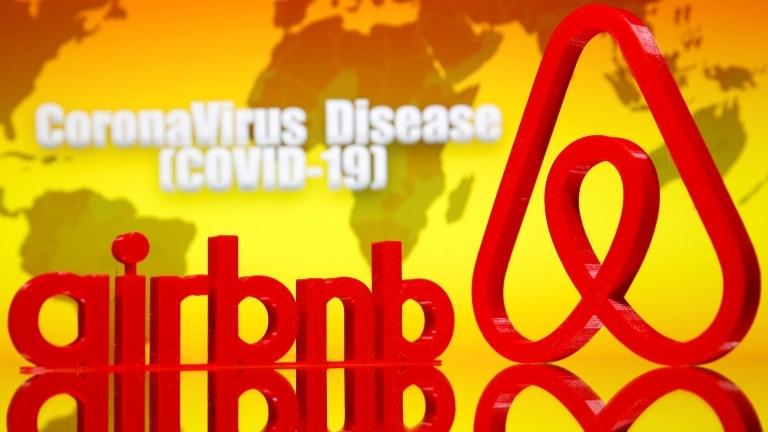Coronavirus: Boris Johnson taking short walks as care continues
- Published
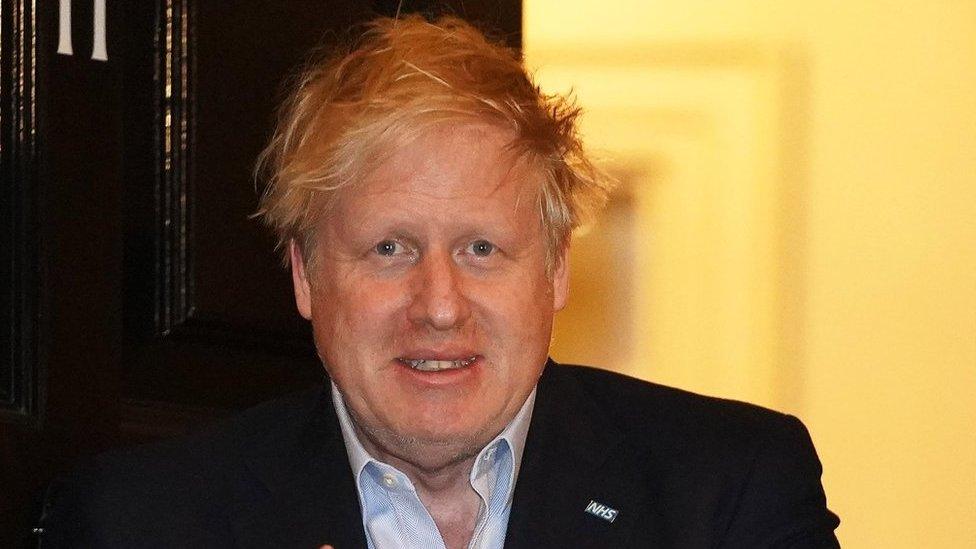
The PM outside Downing Street before he was admitted to hospital
Boris Johnson is taking short walks between periods of rest as part of the care he is receiving for coronavirus.
The prime minister has also thanked the team looking after him for the "incredible care" he has received, a Downing Street spokesman said.
Mr Johnson was taken to hospital on Sunday - 10 days after testing positive.
Earlier on Friday, his father said Mr Johnson "must rest up" after he was moved from intensive care.
Stanley Johnson spoke of his "relief" that his son had begun his recovery, adding that he thought his illness had "got the whole country to realise this is a serious event".
The No 10 spokesman said: "[Mr Johnson] has spoken to his doctors and thanks the whole clinical team for the incredible care he has received.
"His thoughts are with those affected by this terrible disease."
Earlier, the spokesman said the prime minister was back on a ward and "in very good spirits", emphasising that Mr Johnson was at an "early stage" of his recovery from coronavirus.
NHS England has announced 866 more people have died in England after testing positive for coronavirus, and separate figures show there have been 48 more in Scotland, 29 more in Wales and 10 more in Northern Ireland.
Meanwhile, scientific adviser Prof Neil Ferguson, who was asked about coming out of lockdown, said it would likely "be targeted by age, by geography".
Prof Ferguson, of Imperial College London, told BBC Radio 4's Today programme that work to end the coronavirus lockdown in the UK was the "number one topic and priority" both in the scientific community and in government. "Every waking minute, as it were," he said.
Speaking about what measures might be needed to end the lockdown, Prof Ferguson said the UK would have to introduce larger levels of testing at community level "to isolate cases more effectively".
However, he suggested the lockdown would have to remain in place for "several more weeks".
Labour leader Sir Keir Starmer has called for clarity about how long the prime minister will be "out of action".
"We need robust replacement arrangements in place and we need to know what they are, as soon as possible," he said.

A SIMPLE GUIDE: How do I protect myself?
AVOIDING CONTACT: The rules on self-isolation and exercise
HOPE AND LOSS: Your coronavirus stories
LOOK-UP TOOL: Check cases in your area

Meanwhile, the government has launched a campaign urging people to stay at home over the Easter Bank Holiday.
It comes as Housing Secretary Robert Jenrick defended his travel moves amid reports he flouted lockdown rules.
The MP for Newark in Nottinghamshire is said to have travelled from London to a second home in Herefordshire, and separately visited his parents in neighbouring Shropshire, according to the Daily Mail, external and the Guardian, external.
The government has advised against travel to second homes - and urged people to distance themselves from elderly relatives.
Mr Jenrick said he had been in London on ministerial duties and left for what he said was a family home in Herefordshire to join his wife and children.
He added that he visited his parents to deliver essentials, including medicines - allowed by the rules.
Downing Street has defended Mr Jenrick, saying it was "not an unnecessary journey" for cabinet ministers commuting to and from London to rejoin their family.
"We're confident that he complied with the social distancing rules," a spokesman said.
Shadow home secretary Nick Thomas-Symonds said it was "important for public confidence" that Mr Jenrick explained the purpose of the journey.
But he added that if the housing secretary had delivered medicine to his parents, "clearly... it fits within the four exceptions".
Prof Paul Cosford, medical director for Public Health England, said government guidelines were "quite clear" that people must stay at home except in one of four circumstances, including exercise, essential shopping for food and medicines, healthcare and essential work.
"I can't comment on Mr Jenrick, it sounds as if what he did was within one of the four guidelines to me, but others will obviously have to think about that more," he told the Today programme.
Asked about the government's lockdown exit strategy, Prof Cosford said he "could conceive of circumstances in which some of the restrictions are lifted sooner and some are lifted later", but cautioned that there was still an "awfully long way to go".
Meanwhile, the German army is donating 60 mobile ventilators to the NHS. There are currently 10,000 available in the UK and the government says 18,000 are needed.
Thousands of masks and personal protective equipment (PPE) suits for the UK are also scheduled to arrive at RAF Brize Norton later on Friday from Nato ally Turkey.
'Happy safe Easter'
At the government's daily briefing on Thursday, Foreign Secretary Dominic Raab - who is standing in for Mr Johnson - acknowledged it was hard for people hoping to go out and be with their families over Easter, but urged restraint.
Mr Raab was speaking ahead of a bank holiday weekend forecasted to see temperatures as high as 26C in London on Saturday, though cooler weather is expected on Sunday.
He said lockdown restrictions will stay in place until evidence showed the UK had moved beyond the peak of the virus.
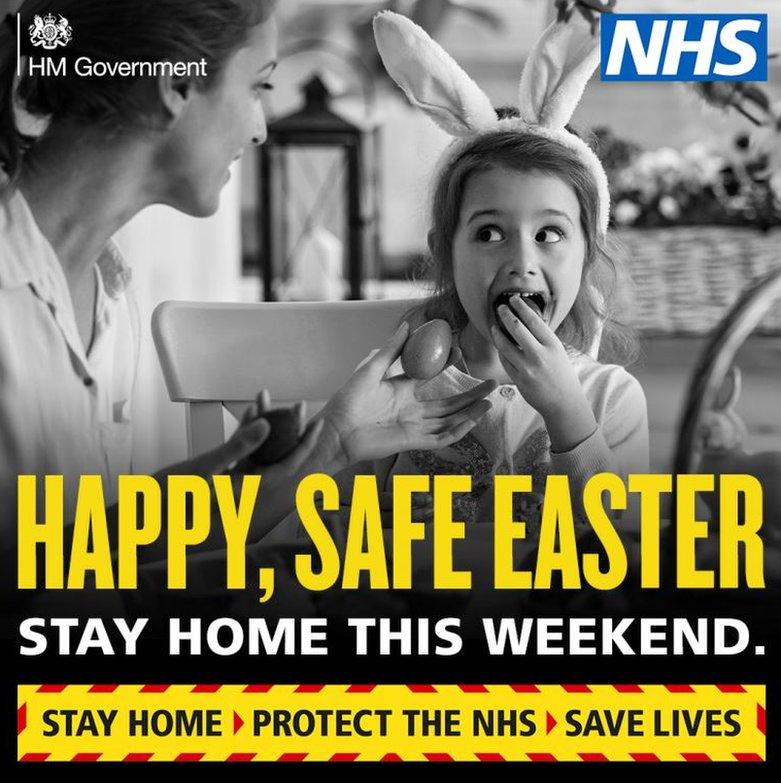
The new campaign aims to reinforce the importance of staying at home over Easter

Police forces across the UK have urged people to stay at home over the Easter weekend, with police in North Ireland warning of increased patrols, and forces in Wales vowing a crackdown on unnecessary travel.
Police Scotland officers will also be on patrol to explain the risks to public health of flouting guidance.
Some forces and local authorities said they had already turned away would-be holidaymakers making journeys to popular destinations on Thursday.
Downing Street has given its "full backing" to officers enforcing the lockdown rules.
However, some forces have been criticised for their handling of the new measures.
On Friday morning, the Cambridge Police Twitter account posted a statement to "clarify" officers were "not monitoring" what people are buying from supermarkets.
An earlier post suggested officers were patrolling "non-essential" aisles at Tesco supermarket in Barhill.
The force said the initial post, since deleted, was made by an "over-exuberant" officer.
"The force position, in line with national guidance, is that we are not monitoring what people are buying from supermarkets," Cambridge Police tweeted, external.
On Thursday, Northamptonshire's chief constable was criticised for saying he would not rule out road blocks or checking supermarket trolleys - later confirming that the force would not be judging people on what they are buying.
Watch people around the UK clap for NHS workers on 9 April
A number of Easter-themed government adverts will be running in newspapers and on social media urging people to stay at home during the holiday.
A government spokesperson said: "We understand that people will want to spend time with their friends and families this Easter, and we recognise that we are asking the public to make sacrifices in the fight against this disease.
"We are at a crucial moment in preventing further transmission of coronavirus, and so it is vital that we continue following the government's guidance."
In other developments:
A 460-bed Nightingale hospital facility for the North East is to be opened at an industrial estate in Washington, Tyne and Wear
A doctor who appealed for personal protective equipment (PPE) has died after contracting coronavirus
EU finance ministers have agreed a €500bn (£440bn) rescue package for European countries hit hard by the coronavirus pandemic
Concerns have been raised by a senior official in the NHS that children with illnesses unrelated to Covid-19 are going to hospital too late and coming to harm as a result
Universities across the UK have warned some institutions will go bust because of the outbreak
Online sales of Easter eggs are surging as UK consumers turn to the internet during the lockdown
The Foreign Office has chartered 12 more flights to bring more than 3,000 stranded Britons back from India from Monday

How have you been affected by the issues relating to coronavirus? Share your experiences by emailing haveyoursay@bbc.co.uk, external.
Please include a contact number if you are willing to speak to a BBC journalist. You can also contact us in the following ways:
WhatsApp: +44 7756 165803
Tweet: @BBC_HaveYourSay, external
Send pictures/video to yourpics@bbc.co.uk, external
Please read our terms & conditions and privacy policy
- Published9 April 2020
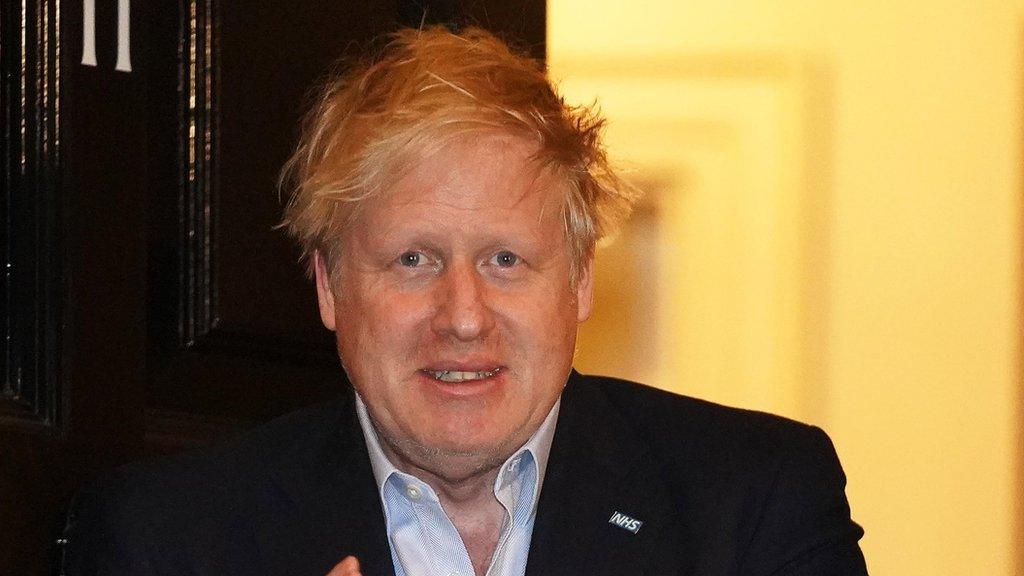
- Published9 April 2020
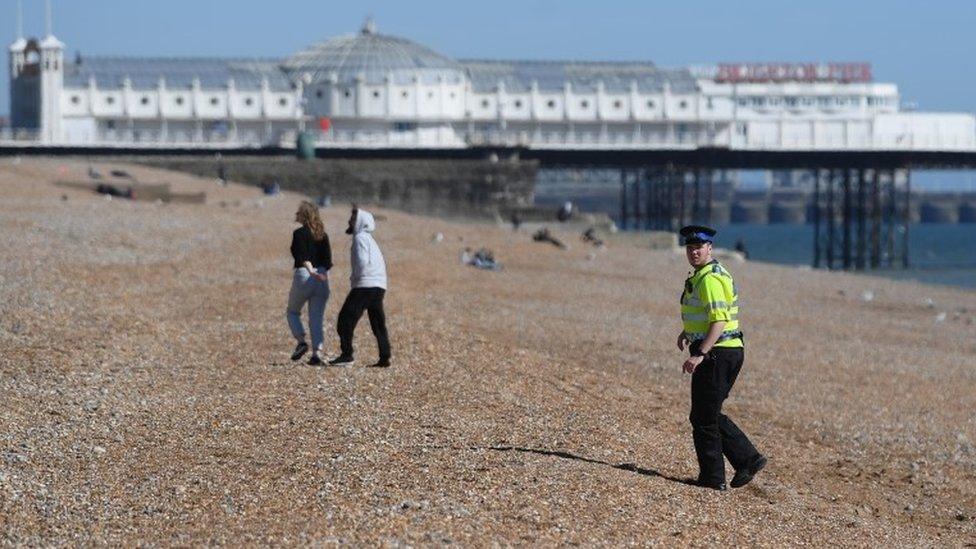
- Published9 April 2020
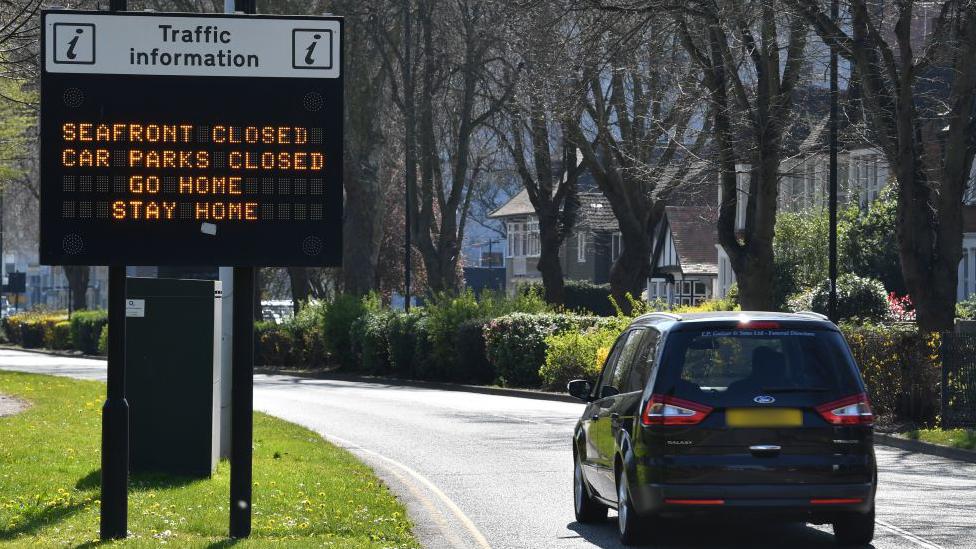
- Published9 April 2020
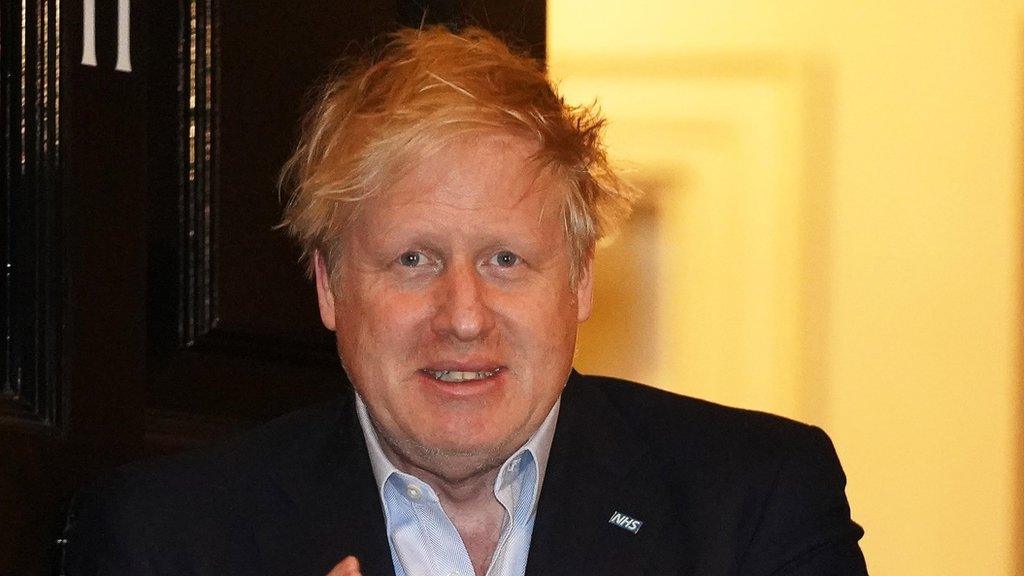
- Published9 April 2020
